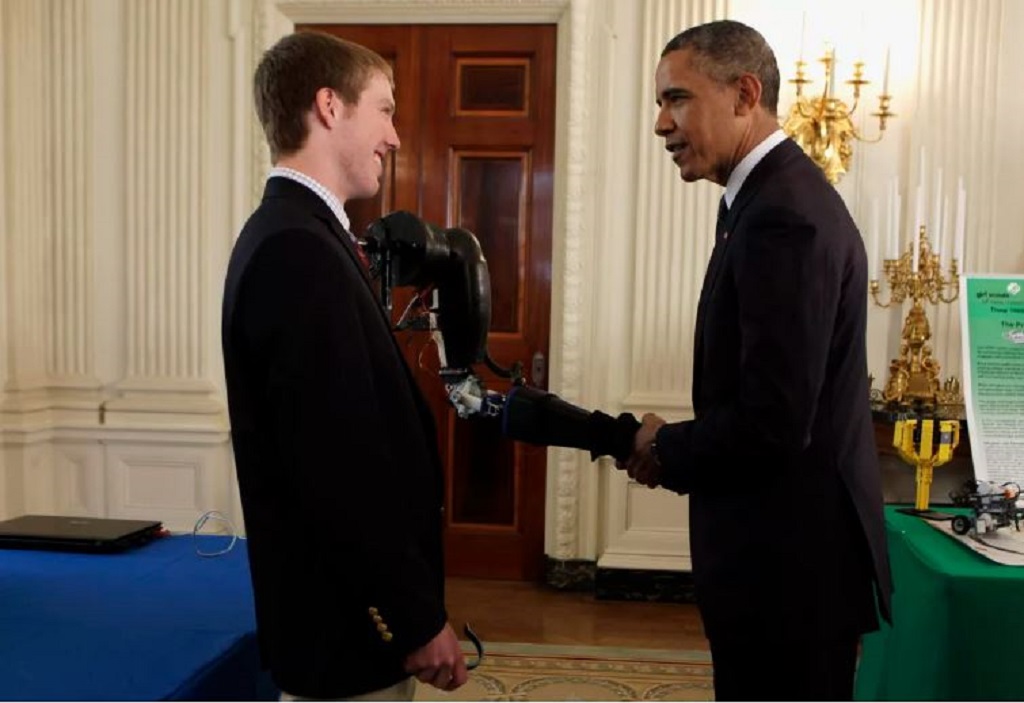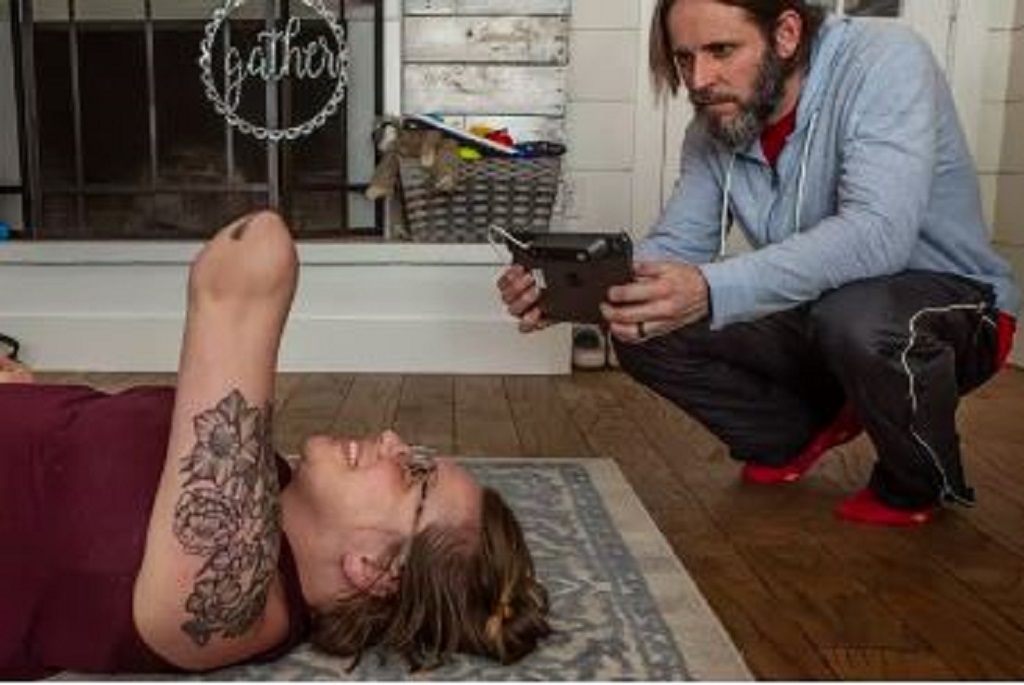
[Source: Getty Images]
Young entrepreneur Easton LaChappelle built his first robotic arm at the mere age of 14. Now, at the age of 24, he’s the CEO of Unlimited Tomorrow –a company looking to reimagine the prosthetics industry.
Where It All Started
LaChappelle told CNET that he founded Unlimited Tomorrow a few years after entering his device in the Colorado State Science Fair. Here, he says, he noticed a young girl who was interested in his project.
He explains:
“She was looking at the details more than really any other kid. And it caught my eye and I realized that she was missing her right arm and wearing a prosthesis”
A year after this ordeal, President Obama would be shaking hands with his invention at the White House Science Fair.
Unlimited Tomorrow
The startup itself recently began accepting orders for TrueLimb — which is their customized, 3D printed robotic arm. Clients (with the assistance of another person) would scan their limbs using an iPad-based 3D scanner to determine the fit of their product. Normally, getting fit for a prosthetic would involve working with a specialist in the field, and this process isn’t cheap. A traditional prosthetic could cost as much as $80,000-$100,000, while TrueLimb costs less than a tenth of that — $8,000 — presumably because of the direct-to-consumer model in place that enables the entire process to be remote.
“We create every piece of our product,” Lachappelle told SingularityHub. “We don’t rely on another prosthetic manufacturer to make expensive sensors or electronics. By going direct to consumer, we cut out all the middlemen that usually drive costs up.”

Kids’ prosthetics have another hidden cost associated with them. As a child outgrows a prosthetic, they have to be refitted for an entirely new prosthetic limb. Unlimited Tomorrow focuses on making prosthetics for kids — so they’re prepared to tackle this problem. As kids outgrow their TrueLimb, they return it to the company, where the expensive quality components are upcycled and integrated into a new customized device.
We spoke to LaChapelle a couple of years ago, when Unlimited Tomorrow and Stratasys announced a collaboration with SOLIDWORKS.
Stratasys’ Director of Marketing for Healthcare Solutions, Michael Gaisford, told us:
“The sophistication comes on multiple levels. A lot of the 3D printed hands that you’ll see out there have designs you can download and then customize it to the patient. This is built entirely differently. It starts from the digital workflow of 3D scanning for both the stump and the the existing arm.
Have you seen a solution like that? That’s very distinctive in terms of the approach of making sure the hand is designed so that it’s aesthetically going to fit the recipient; it’s going to match. It’s not just going to be generic. But not to put down other designs, but a generic design doesn’t really match. So I think that digital workflow and adding that digital flow is really going to take the full power of 3D printing. Then Easton has put together a full ecosystem of partners to develop the solution, to have that automation, and to be able to quickly translate that data and then create the 3D printer printable files. The actual design of the arm, he can speak to it much better than I, but you heard the elements of it: the machine learning, the neural network, the number of different types of sensors; some arms have just myoelectric, some have other types of sensors and this is integrating a full range of different sensors.”
The Road Ahead
Although Unlimited Tomorrow currently focuses on robotic arms, they hope to expand into exoskeletons and prosthetic legs later on.
“I am constantly blown away by this tech,” LaChappelle adds. “We look at technology as the means to augment the human body and empower people.”
Looking further than the industry itself, LaChappelle’s goal to empower people is admirable. Not having access to affordable prosthetics closes a lot of opportunities for those suffering limb loss and it’s a comfort to everyone to know that technology advancements like these are helping millions with their daily life.
Via Unlimited Tomorrow, SingularityHub, and CNET
